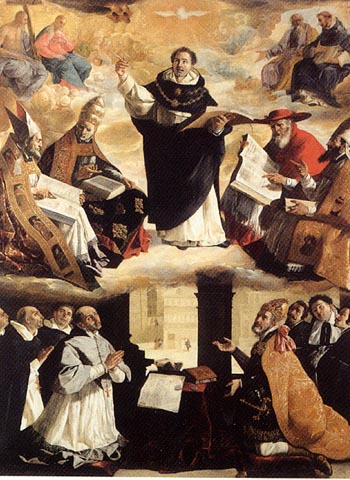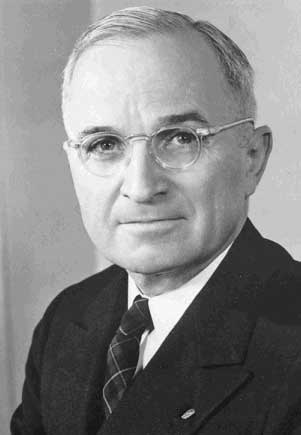
What's the issue and why is it important?
It is one of the great issues of our day. We are urged to egalitarianism by the media pundits and others who treat it as the chief modern political dogma.
The belief that there is a natural order for human society and that, whilst each man is of equal moral worth, it is natural for there to be a hierarchy within human society, is a belief much scorned and derided in the modern world.
"We are all equals here" is the motto of the day and the spirit of the age. The
zeitgeist tells us that "Jack's as good as his master" and that, in any case, there should not be masters and servants, kings and subjects, bishops and faithful, nobles and people, pastors and flocks, officers and men.
We should all be put on an exactly equal footing and everyone treated exactly the same. Even the difference between the sexes has to be ironed out according to modern notions of equality.
Total equality, or egalitarianism, is the order of the day.
But is it right, morally, intellectually and logically?
No.
And here's why.
First and last, the creed of egalitarianism is the creed that says
Non serviam or "I shall not serve", the motto and cry of the Devil himself. The egalitarian refuses to serve any other man. He may wish to help him on an equal footing - if he chooses - but he refuses to
serve him
.
This often stems from a false understanding of the master-servant relationship. Modern men often think this relationship is a relationship of unilateral exploitation by the master and degradation for the servant. That, in fact, stems from a false development of the relationship after the French and Industrial Revolutions and the rise of Capitalism when, in the name of a spurious liberalism, corrupt masters became mere "employers" and sought to throw off their obligations to their servants, treating them as mere "employees" good only for enriching the Capitalists and then to be thrown away when no longer useful.
The proper master/servant relationship is one of mutual love and service, one to the other. The servant serves the master like a son and the master cares for the servant like a father. Each must love and respect the other and serve each in their respective capacities. It is a reflection of the familial relationship. It is not a relationship of mere mutual exploitation, each seeking to take from the other as much as he can squeeze out of them. It must be, rather, a mutual relationship.
So, too, should be the relationship of ruler to ruled, king to subject and pastor to people.

The Queen is at the apex of the hierarchy of the Constitution
Secondly, if there is no hierarchy amongst men and all are absolutely equal in authority then to whom does any man look for a definitive view on morality, law, social ethics or, indeed, anything? Today it is either the self or the majority.
The atheist will say the yardstick is himself alone but that is of little use since it is merely subjective and so ultimately a mere matter of personal taste.
Others will say that, since all are equal, the answer lies in the majority view. It is this view which is popular in today's secular world. But it is of no use since one cannot decide morality by a mere majority vote.
Only hierarchy - and a hierarchy with God at the apex - can provide the final answer to moral questions and to questions about the end and purpose of life.
This does not mean, as some facile and sloppy-thinking critics claim, that man cannot think for himself. On the contrary, man must think for himself all the more under hierarchy and must do so with clarity and logic.
The atheist has no final reference point beyond himself and so his thoughts are ultimately only self-referring which is hardly to think at all. It is he, and not the believer, who ultimately is the creature of every passing fashion that takes his fancy and so cannot truly think for himself.
Consider a practical situation: if we are all absolutely equal and the majority is to dictate our morality because no man has any other moral authority over another, then all authority is merely delegated by the majority to the office-holders in society.
These office-holders must then be obeyed in all they ordain within the authority given to them by the majority.
Indeed, the ordinances of the office-holding delegates must then be considered by all others in the community to be morally right and so must obeyed.
Any individual who disobeys the delegate of the majority is really pitting himself against the majority, since the majority is, in such a scheme, the only moral authority (because all are equal).
Then one has no choice but to act in accordance with that majority authority and upon the orders of its delegate.
One cannot pits one’s own individual view against that of the majority’s delegate since that would be to pit one man’s absolute equality against the absolute equality of the far larger numbers who make up the majority. Thus where one man’s view opposes that of the majority he must give way to the majority and its delegate.
This is the tyranny of the majority and the false, egalitarian view of democracy and government. It was a view championed by men like Jean Jacques Rousseau, one of the "fathers" of the Enlightenment and, willy nilly, of the French Revolution that followed it.
 Jean Jacques Rousseau
Jean Jacques Rousseau
Under this view the majority's delegate could order a man to kill his own mother and he would have to obey since morality under such a view is that of the majority and its delegate.
This is precisely what Communism and extreme Socialism require of men.

Moreover, although it looks like an hierarchical creed, Nazism is little different. The "Fuhrer" or "Leader" is meant to be the delegate of the majority once again, the chief difference being that the majority excludes supposedly "sub-human" persons who are said not to be of the master race.

Where there is no true hierarchy there can be no true humanity.
When there is hierarchy and its recognition, then any single individual man can appeal over the head of his immediate superior to a higher superior and, ultimately, to the highest superior of all, God.
Thus if a genuine superior, or master, orders something that is immoral then the servant can look beyond him to a higher superior e.g. the law or the Constitution or international law and if these, in turn, still require him to follow an evil order then he can look to the Natural Law and Divine Law ordained by the highest superior, God.
A military analogy may assist: if a Captain tells a Corporal to shoot a civilian in cold blood then the Corporal can appeal to the Colonel who is higher in rank. If that fails he can appeal to the Geneva Convention and national and international law. If that fails then he can appeal to the Natural Law and God which are both higher than any human law or authority.
This is not disobedience, as some silly people say, but rather it is to obey the higher law, that of God, in preference to the lower law, that of man.
This is how hierarchy works. Even if the Pope himself were to give an unlawful or immoral order, one can appeal over his head to the law of God.
 St Thomas, Count of Aquino, Dominican Friar and the Angelic Doctor of the Catholic Church understood hierarchy and taught popes and bishops, emperors and kings, how to exercise it
St Thomas, Count of Aquino, Dominican Friar and the Angelic Doctor of the Catholic Church understood hierarchy and taught popes and bishops, emperors and kings, how to exercise itMoreover, the law of God is written in the heart of man so every man has immediate access to it in the form of his own conscience. But conscience is of no use to the strict egalitarian since one man's conscience, to him, is of no greater consequence than that of any other man and so we must again turn to majorities to decide whose "conscience" shall prevail.
Thirdly, an hierarchy of authority reflects the hierarchy of God and heaven.
Those who think that everyone is equal in heaven are simply wrong. As Scripture says:
"the first shall be last and the last, first"
[Matt 19:30, 20:16; Mark 9:34, 10:31; Luke 13:30]
There is undoubtedly an hierarchy in heaven with God at the supreme height, our Lady next, then St John the Baptist, St Joseph and the Apostles. Below that are ranked the saints in order of their sanctity with no accounting for any worldly honour but only for holiness which in turn means service to others. For, as Scripture says:
"[He] emptied himself, taking the form of a servant, being made in the likeness of men, and in habit found as a man. He humbled himself, becoming obedient unto death, even to the death of the cross. For which cause God also hath exalted him, and hath given him a name which is above all names."
[Philippians 2:7-9]
This is the very example of God who, despite being the Supreme Being and Creator of the Universe, humbled Himself to serve all men, even unto death upon a cross.
Egalitarian atheists like the British-born, American journalist, Christopher Hitchens, detest hierarchy because they detest God being at the apex of it. They want to be at the apex themselves. Such a man hates the idea of a servant-king-God and prefers the idea of a selfish-man-god, namely himself. Thus everything becomes referable solely to self - but only to his own self. There is then no more morality but that which the self wishes.
But what happens when one self clashes with another self? Whose morality is to prevail?
Either it is the majority, as I have said above, or else it is whichever self can prevail over the other self - whether by force or cunning. In short, it is the law of the jungle. But atheists like Hitchens are prepared to risk this because they consider that they can prevail over others and so occupy the apex at the top of the tree.
This view is little different from Nazism and Communism under which creeds there is no real morality beyond that of whomever is in charge.
Worse still is the self-worship of those who, living in a society that has not yet become completely corrupted by the totalitarianism of relativism, nevertheless consider their own will the final arbiter of all morality and so claim the right (at least to themselves) to prevail over all others.
Hypocritically, they do this whilst benefiting from a society where there are still many people who do not take such a selfish view of morality.
Such people are the true enemies of society and are its true subversives. To such a man there is only one God, namely himself.
 Christopher Hitchens, self-proclaimed God-hater
Christopher Hitchens, self-proclaimed God-hater
Hitchens is one such. And he has shown himself such in his own life, deserting his pregnant wife to run off with another, ratting on his own best friend, Sydney Blumenthal, and writing a book entitled "God is not great". This latter shows that he is not really an atheist but rather he wishes to replace the real God with the god of his own ego. A true atheist would simply not be so hot and bothered about a God in whom he did not believe.
Hitchens thinks God is a totalitarian tyrant and that heaven is a prison camp. The reverse is true. God is the ultimate liberal (in the good sense) and lets every man have his own free will and choose his own path - even if it is to Hell which is the real prison, the prison of the selfish ego.
Heaven is the place for those who wish to serve others and do so freely, recognising that to serve others feely and willingly is the greatest freedom of all since man is a social being for whom there is no freedom without his interacting with other beings. A man without society is like a man confined to a solitary cell in prison, the very worst form of deprivation of freedom.
But Hitchens cannot see that. He prefers to serve himself and not others. He is thus like his real master, Satan, who is, indeed, the very embodiment of the totalitarian tyrant, ruling Hell like the very acme of a totalitarian prison camp of the most unimaginably awful kind. For in Hell all wills and egos are in constant clash, no man can live in charity with his neighbour and, ultimately, the will of the one with the biggest ego - Satan - prevails.
This is what awaits poor Mr Hitchens unless he has a change of heart. So let us pray for him.
A good man and a good ruler recognises that there is always Someone greater than himself to Whom he must later render account. Such a leader will seek to serve others and to be a servant to others and he will always treat those who serve him with great love and respect.
The best leaders will seek to emulate Christ who, though the Supreme Being and the Creator of the entire Universe, nevertheless made Himself the servant of all others, even unto death.
One such modern leader was the Blessed Emperor Charles I of Austria-Hungary, the last of the great line of Catholic Habsburg emperors.
 Blessed Emperor Charles I of Austria
Blessed Emperor Charles I of AustriaFine examples of the mutual community and hierarchy which concurrently exist both in heaven and on earth can be seen in Catholic art.
One such is the painting by El Greco called "The Burial of Count Orgaz". In it is one sees both the court of heaven arrayed in hierarchy and the court of the Kingdom of Spain arrayed in hierarchy - but all are meant to serve each other and are doing so as they bury the Count. Here it is depicted below:
 El Greco. The Burial of Count Orgaz. 1586.
El Greco. The Burial of Count Orgaz. 1586....
 St Magdalene of Nagasaki (died 1634), an Augustinian Tertiary in Japan, in spite of great danger and difficulty, remained faithful to Jesus Christ until her martyrdom.
St Magdalene of Nagasaki (died 1634), an Augustinian Tertiary in Japan, in spite of great danger and difficulty, remained faithful to Jesus Christ until her martyrdom.








































.jpg)


























_-002.jpg/220px-Circle_of_Anton_Raphael_Mengs,_Henry_Benedict_Maria_Clement_Stuart,_Cardinal_York_(ca_1750)_-002.jpg)


